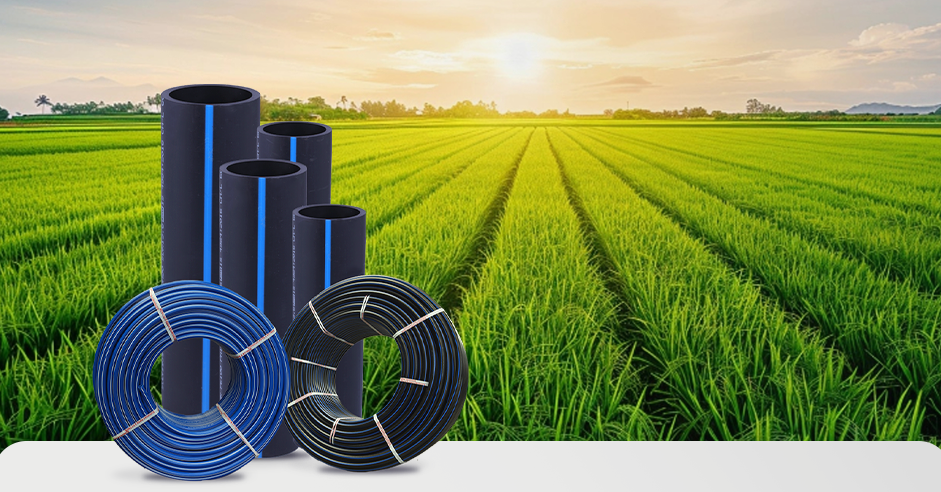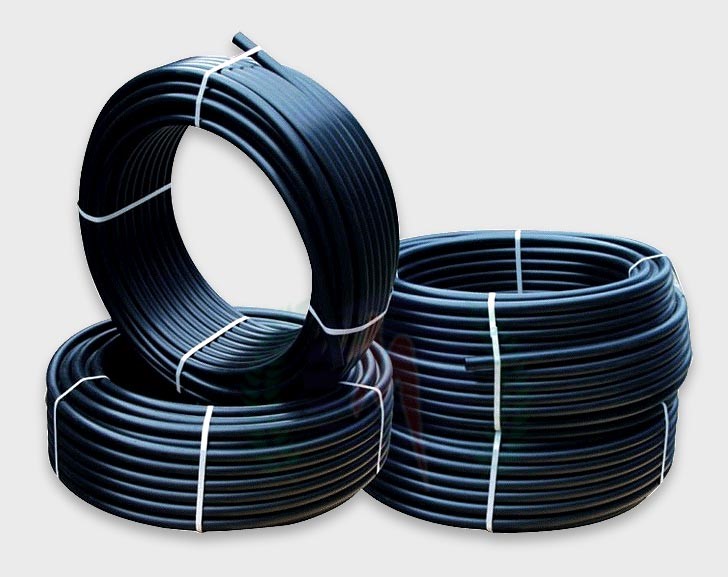Essential Reasons to Choose hdpe pipe suppliers Midland TX for Reliable Sourcing
Wiki Article
Recognizing the Key Perks of HDPE Pipeline for Water and Wastewater Management
Using HDPE pipe in water and wastewater management offers many benefits that warrant factor to consider. Its remarkable sturdiness and long life expectancy make it a recommended selection for numerous projects. Furthermore, the material's resistance to rust and chemical damage enhances its dependability in numerous atmospheres. The advantages expand beyond simply longevity and resistance. hdpe pipe suppliers Midland TX. Exploring its cost-effectiveness and ecological effect reveals much more compelling reasons for its prevalent fostering in modern frameworkExceptional Resilience and Longevity

HDPE pipeline stands apart for its extraordinary longevity and longevity, making it a favored selection in water administration systems. Created from high-density polyethylene, these pipelines can hold up against substantial pressure and stress and anxiety, making sure reliable performance with time. Their durable nature permits them to withstand severe environmental conditions, consisting of temperature variations and soil motions, which can cause other materials to fall short.
The lifespan of HDPE pipes commonly goes beyond 50 years, offering a cost-efficient solution for communities and markets alike. Furthermore, the material's lightweight residential properties simplify installation, minimizing labor costs and timeframes. This resilience minimizes the demand for regular repair services or substitutes, additionally improving its economic allure.
In water monitoring applications, the dependability of HDPE pipelines indicates fewer disruptions and improved service continuity, making them indispensable to sustainable infrastructure growth. The combination of durability and long life strengthens HDPE's role as a cornerstone in effective water monitoring services.

Resistance to Deterioration and Chemical Damage
While numerous materials succumb to corrosion and chemical damage with time, HDPE pipes exhibit amazing resistance, making them perfect for various water management applications. This durability stems from the molecular structure of high-density polyethylene, which is inherently non-reactive and does not corrode like steels or deteriorate from exposure to harsh chemicals. As an outcome, HDPE is very reliable in atmospheres with hostile compounds, such as wastewater systems that might have acids, bases, and natural solvents.
In addition, HDPE pipelines can hold up against ecological factors such as dirt acidity and saline problems, additionally boosting their suitability for diverse applications (Midland TX HDPE Pipe Fittings in Stock). Their capability to keep architectural integrity gradually reduces the risk of leaks and failures, which is critical in ensuring the safety and security and integrity of water distribution and wastewater monitoring systems. The resistance to rust and chemical damage substantially contributes to the overall performance and longevity of HDPE piping solutions.
Cost-Effectiveness and Economic Benefits
When thinking about the economic implications of water monitoring systems, the cost-effectiveness of HDPE pipes becomes apparent. These pipelines supply lower installation and maintenance prices compared to typical materials like steel or concrete. Their lightweight nature streamlines transportation and installment, leading to decreased labor expenditures. Additionally, HDPE pipelines display a long lifespan, often going beyond 50 years, which translates to less replacements and lasting savings.In addition, the resistance of HDPE to rust and chemical damages minimizes the requirement for pricey repair services and substitutes. The pipelines likewise sustain reliable water flow, lowering energy expenses related to pumping systems. By alleviating leakages and water loss, HDPE pipes add to substantial economic benefits for districts and industries alike. In general, the initial financial investment in HDPE piping can generate substantial financial returns over the lifespan of the water management system, making it a prudent selection for lasting framework development.
Environmental Sustainability and Decreased Impact

Versatility and Adaptability in Setup
As a result of their one-of-a-kind properties, HDPE pipelines provide impressive convenience and versatility in installation, making them appropriate for a variety of applications. Their lightweight nature permits simpler handling and transport, lowering labor costs and installment time. HDPE pipes can be curved and formed to fit various surfaces and job demands, which is especially beneficial in challenging settings.Furthermore, their resistance to corrosion and chemical damage permits installment in diverse setups without the demand for specialized protective finishings. The capacity to fuse joints creates a continual, leak-free system, enhancing the general honesty and integrity of the installation. HDPE's adaptability also suits ground activity, reducing the risk of damage in locations vulnerable to moving dirt. Overall, these qualities make HDPE pipes not only flexible however likewise a favored choice for water and wastewater administration systems.
Frequently Asked Questions
How Does HDPE Pipe Compare to PVC in Water Monitoring Applications?
HDPE pipeline uses exceptional adaptability, resistance to deterioration, and toughness compared to PVC. Its lighter weight assists in less complicated installation, while its lengthy lifespan lowers replacement costs, making HDPE a favored selection in water administration applications.What Is the Life-span of HDPE Piping Under Normal Problems?
Under normal conditions, HDPE pipes can have a life-span varying from 50 to 100 years. Their sturdiness and resistance to corrosion add to their long-term performance in various applications, making them a reliable option for infrastructure.Are HDPE Piping Recyclable After Their Life Span?
Yes, HDPE pipes are recyclable after their service life. Texas hdpe pipe manufacturer. They can be processed and repurposed right into new products, significantly lowering environmental effect and promoting sustainability within the sector, making them an environment-friendly choice for piping solutionsWhat Is the Installment Process for HDPE Piping?
The setup procedure for HDPE pipes includes site prep work, trenching, pipe blend or mechanical joining, backfilling, and pressure screening. Proper methods assure a resilient and reliable system for carrying water and wastewater properly.Can HDPE Pipeline Be Made Use Of for Both Potable and Non-Potable Water Solutions?
Yes, HDPE pipelines can be made use of for both potable and non-potable water supply. Their flexibility, durability, and resistance to rust make them ideal for various applications, making sure secure and efficient transport of water in different contexts.Report this wiki page